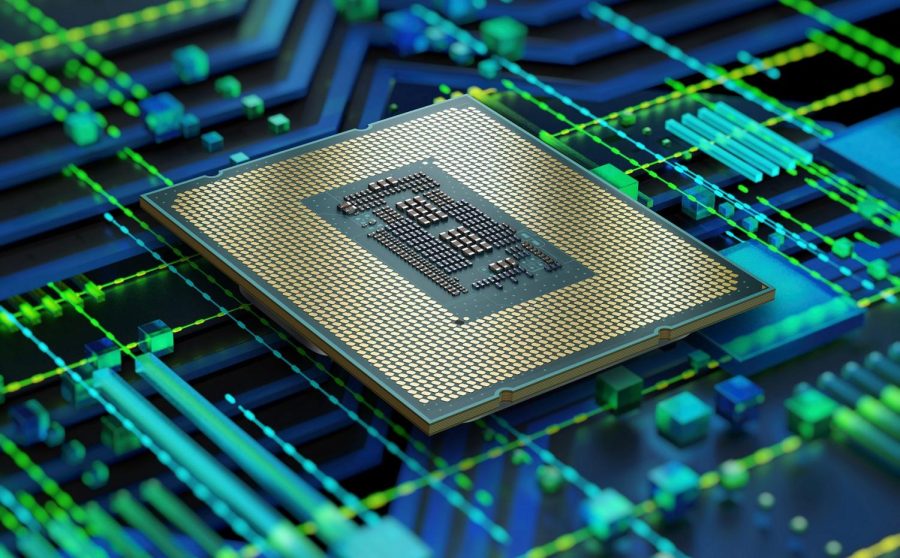University celebrates ‘major accomplishment,’ future of microelectronics with $1.1M Intel grant
Intel launched 12th Gen Intel Core processors at CES 2022. (Credit: Intel Corporation)
September 26, 2022
Kent State, along with 13 other Ohio universities, was chosen by Intel to spearhead its 80-member Semiconductor Education and Research program on Sept. 9.
The leadership position, which followed the announcement of a $20 billion investment by the company in the construction of a chip factory outside of Columbus, will provide Kent State with a three-year $1.1 million grant to increase the number of graduates in the microelectronics field.
According to Peggy Shadduck, vice president of regional campuses, 70 percent of Intel’s new hires will be those with technical associate degrees. As the demand for trained professionals increases, the university will look to provide those graduates.
“Kent State’s biggest role here is to help coordinate all of those efforts, especially taking advantage of some of the resources that we have,” Shadduck said. “We have, obviously, some excellent professors that are very knowledgeable about things. We also have our cleanroom inside of the Advanced Materials and Liquid Crystal Institute, and that is a sort of a small version of what Intel will do in these fabrication facilities.”
In the next three years, the university expects to graduate an additional 360 associate degrees, 600 bachelor degrees and 20 advanced degrees in the semiconductor field. As the only lead university in northeast Ohio, part of the program Kent State plans to focus on is expanding educational opportunities to underserved communities.
“We are able to bring in folks from very wide areas, individuals who would be less likely to attend college or less likely to go into education in these areas at any levels and provide them a pipeline for a job that’s pretty well-paying,” said Doug Delahanty, interim vice president for research and sponsored programs.
Another focus of the university will be to provide short-term learning opportunities, known as micro-credentials, that can strengthen a degree. Often, not for credit, these will immerse students in specific learning of how semiconductor technology works.
“One of the things that I think about, for example, is if somebody is getting a degree in marketing or journalism and communication and really is hoping to get a job with a large company like Intel, it might be really beneficial for that person to have some direct knowledge of the kind of hands-on work that the company does,” Shadduck said. “Some of what we will be doing is intended to compliment degrees that are not necessarily engineering degrees.”
Torsten Hegmann, a principal investigator of the grant proposal and the director of the Advanced Materials and Liquid Crystal Institute at Kent State, said the university’s facilities may have contributed to the leadership role selection.
“Here at Kent State, we have a beautiful space at the Design Innovation Hub … where you could, in principle, experience virtual reality and learn various techniques related to cleanroom and semiconductor chip design and fabrication in a kind of remote fashion,” Hegmann said. “I think that’s cost-efficient; it’s effective, and it allows training of a much larger group of people.”
Hegmann said he sees the Intel grant as a chance for future Kent State students to take advantage of specialized training and other opportunities.
“It’s a good start of a career to have an education through a program, through a company, that is building one of these megasites right here in the state,” Hegmann said.
Over the next few years, the university hopes to increase the number of industry partnerships like this, especially in the field of research.
“This really is a major accomplishment,” Delahanty said, “and also positions us very well for future interactions with industry, as we really do try to grow the number of industry partnerships we have.”
Alton Northup is a reporter. Contact him at [email protected].
Grace Springer is a reporter. Contact her at [email protected].

























